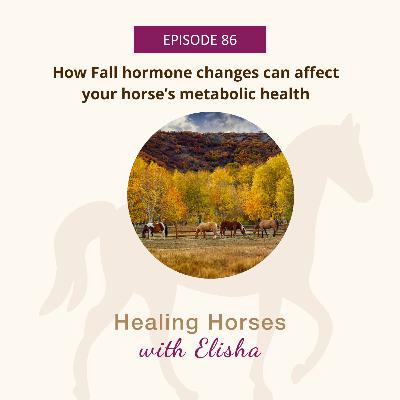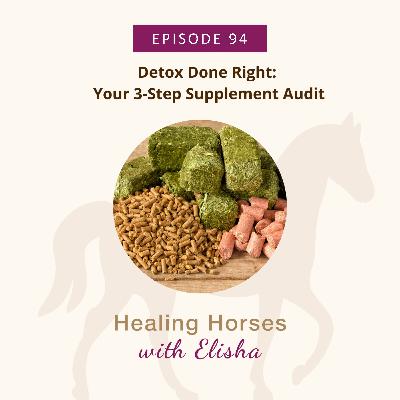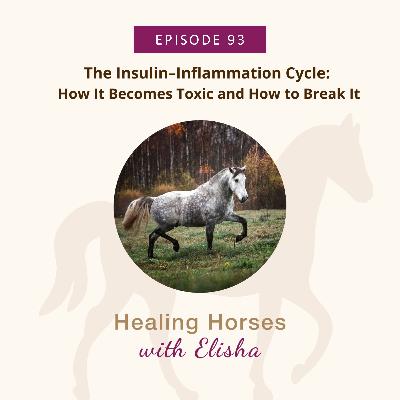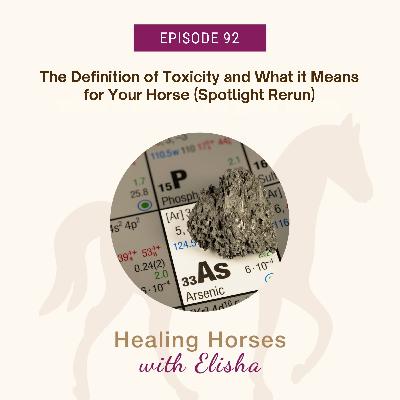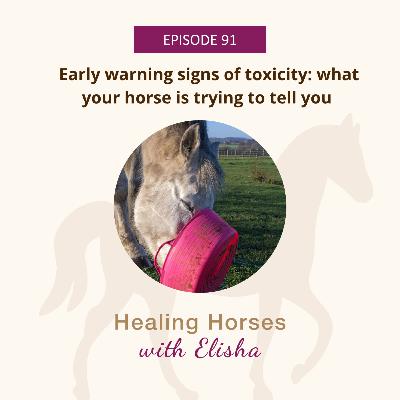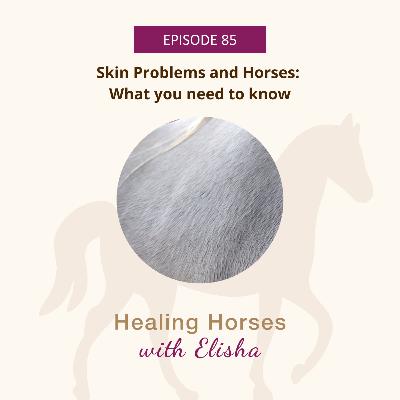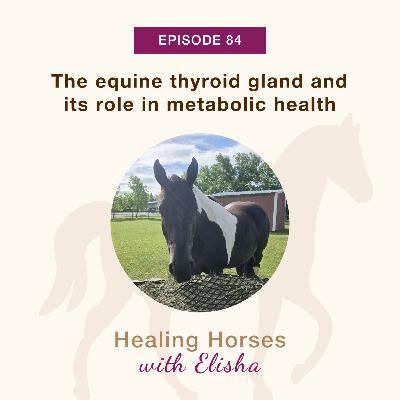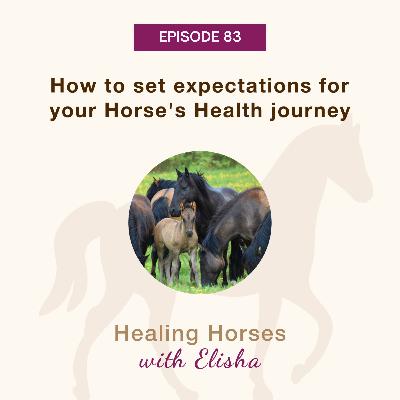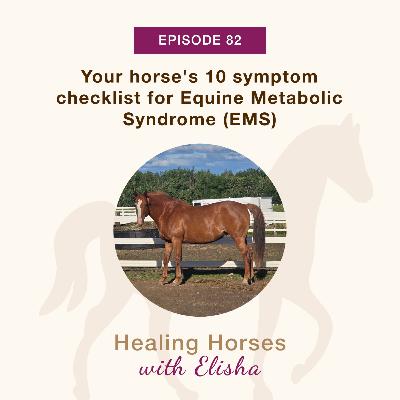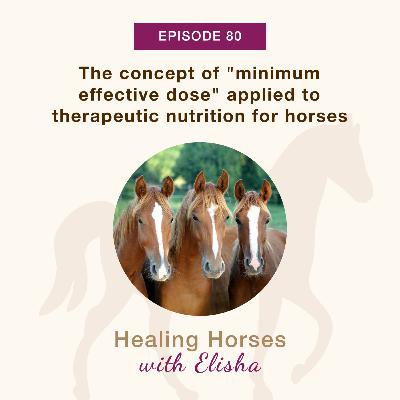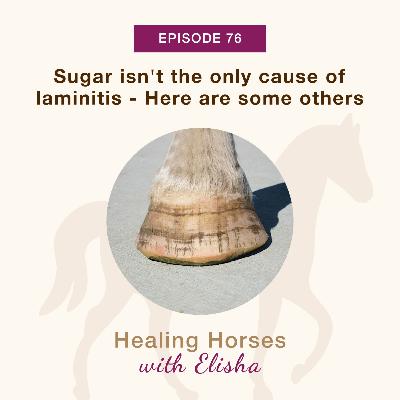86: How Fall Hormone Changes Can Affect Your Horse's Metabolic Health
Description
As we move from summer to fall, and temperatures at night start to cool, subtle changes begin to occur in our horses.
Shorter days trigger powerful hormonal shifts, often before we even notice. Those shifts play an essential role in the health of our horses- especially those with metabolic conditions.
Hormone Shifts and Metabolism
Seasonal hormone shifts influence how horses process sugar, maintain muscle, and manage inflammation. In fall, ACTH levels naturally rise, increasing cortisol to drive fat storage and coat growth in preparation for winter. When those hormones remain elevated for too long, however, problems like delayed shedding, thick coats, sweating, muscle loss, inflammation, and a higher risk of laminitis may emerge.
Fall as a High-Risk Season
Far more horses tend to experience metabolic flare-ups in the fall as it brings a dangerous mix of hormonal shifts, fat storage, and higher pasture sugar levels, all of which raise the risk for equine metabolic syndrome and PPID. As horses naturally conserve energy and build fat reserves before winter, insulin resistance also tends to worsen.
Testing and Diagnosis
A single test showing high ACTH in fall is not enough to diagnose PPID. As ACTH naturally rises seasonally, it is essential to use multiple test results, and get a complete health profile before deciding on lifelong medication.
Insulin, Inflammation, and Weight
Insulin is fundamentally a fat-storage hormone. If it is high, horses cannot lose weight. Chronic inflammation from laminitis or hoof pathologies drives insulin even higher, and elevated cortisol keeps blood sugar high, locking horses into a state of fat storage. That combination often causes gain weight and soreness in the fall.
Diet and Forage Management
Careful forage management is the foundation of supporting metabolic horses. Prioritize low-sugar hay and limit access to rich pasture, especially during high-risk seasons, like fall. Slow feeders, soaking hay, and controlled turnout can all help regulate sugar intake. Consistency in diet not only stabilizes insulin and energy levels but also reduces the risk of flare-ups.
Lifestyle and Stress
Stress management is as important as diet. Horses need freedom to move, regular forage, and companionship to regulate their cortisol levels and maintain metabolic balance. Stalled or isolated horses, or horses with long gaps between feedings suffer higher stress levels, which compounds hormone problems, and no supplement can overcome the damage caused by chronic stress and inappropriate living conditions.
Long-Term Management
Consistency is essential. Progress may seem slow at times, but steady attention to low-sugar forage, regular exercise, and stress reduction leads to lasting improvements. Expect seasonal setbacks, but they will be temporary. Over time, consistent care helps horses rebuild their health and resilience.
Hormonal Considerations in Mares
Mares can be susceptible to seasonal hormonal shifts. Changes in daylight and hormone levels often affect their cycles, behavior, and comfort. For mares with metabolic issues, those fluctuations may add another layer of stress, making careful monitoring and consistent management even more essential.
Do you know what exactly is in your horse's supplements, and what they're actually doing for their health?
Keeping your horse's diet and supplement program clean is one of the most beneficial things you can do for them. There is nothing that turns a horse's health around faster than cleaning up their diet and supporting their health from the inside out.
The good news is I'm going live on Saturday, December 6, 2025, at 10 am Mountain Standard Time, and I invite you to join me for my first-ever two-hour workshop called Detox Done Right: How To Reduce Your Horse's Toxic Load and Upgrade Their Health.
For just $127 Canadian, you will get my hands on my label-reading playbook and my clean feed roadmap- and we will finish with a 30-minute Q&A to help turn your supplement confusion into clarity.
If you care about your horse's health and want real, practical steps that lead to results, then this workshop is just for you!
Save your seat by clicking on the link in the show notes, or head over to my website. No need to worry if you register and miss it because I will have a recording waiting for you, whenever you are ready- but I do hope to see you all there, live!
Links and resources:
Connect with Elisha Edwards on her website
Join my email list to be notified about new podcast releases and upcoming webinars.
Free Webinar Masterclass: Four Steps to Solving Equine Metabolic Syndrome Naturally
Register for my self-paced course, Resolving Equine Metabolic Syndrome Naturally.

